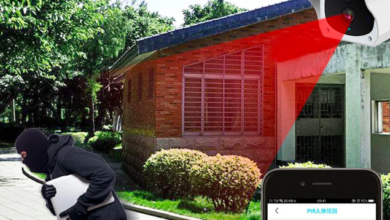Institutions Offering Business Funding in Zimbabwe

Zimbabwe has some of the most entrepreneurial people on the continent but funding is always an issue for people looking for funding. Check out our list of institutions offering business funding in Zimbabwe.

Small and Medium Enterprises Revolving Fund
The Fund is administered by the Ministry through Small Enterprises Development Corporation (SEDCO). All applications should be directed to SEDCO.
Eligible Sectors
All sectors are eligible to apply for the Fund.
Terms and Conditions
Micro Portfolio Loans ($500 and less)
- Non-refundable application fee of $20.
- Interest rate is 15% per annum with loan tenure of 4 months;
- Collateral is movable property.
Loan threshold of $501- $5 000
- A non-refundable application fee of $30;
- Interest rate is 15% percent per annum with a loan tenure of 6 months;
- Collateral Security for $501 – $1000 – a vehicle.
- $1000 to $5000 -Title Deeds or Cession of lease over an immovable property
How to Access the Fund
The prospective client should produce a business plan or proposal, which is comprehensive and visit any SEDCO branch countrywide.
For more information contact
Small Enterprises Development Corporation (SEDCO) Head Office: SEDCO House 170 Chinhoyi Street P.O Box 4520, HarareInfrastructure Development Bank of Zimbabwe (IDBZ)
US $30m SME Loan Facility
Contact Details:
IDBZ 99 Rotten Row Harare Tel: (04) 779004/10 Website: www.idbz.co.zwCommercial Bank of Zimbabwe USD 5 million
Contact Details:
CBZ Bank Union House 60 Kwame Nkrumah Avenue Harare Tel: (04) 748050/79 Website: www.cbzbank.co.zwCentral African Building Society
Contact Details: CABS Central Avenue Cnr Fourth Street/Central Avenue Tel: (04) 252861-7 Website: www.cabs.co.zwU.S. Embassy Zimbabwe Small Grant Funding Opportunities
Ambassador’s Special Self-Help (SSH) Program
The Ambassador’s Special Self-Help (SSH) Program provides grants to assist small-scale community development projects that improve basic economic or social conditions at the village level. Distinct from larger-scale assistance carried out by other parts of the U.S. government, these funds support small, short-term, community-driven activities designed to bring about tangible and immediate improvements in peoples’ lives. Since the program’s inception in 1980, the U.S. Ambassador’s SSH Program has awarded more than $3 million throughout Zimbabwe.
Interested in improving your community?
Read more below to see if the SSH Program can help!
Preference is given to projects focusing on:
- Income generation
- Education and vocational training
- Access to water and improved natural resource management
- Health, nutrition, and social services to assist vulnerable or at-risk populations (such as women, children, and persons living with HIV/AIDS).
Grant Guidelines
Are you interested in applying? Here are a few things you should know:
- Individuals, businesses, and government entities do not qualify. Applicants must be non-governmental, non-profit or community-based organizations registered for at least one year.
- The organization must be entirely Zimbabwean and its members nationals of the host country.
- Self-Help funding cannot pay for operating costs, salaries, training, vehicles, or computers.
- Construction projects and repair of existing facilities are currently not allowed.
- The grants typically range from $5,000 to $25,000.
- Grantees must complete their projects within 12 months of signing the grant agreement.
- We accept applications year-round. However, we receive hundreds of applications and can only fund a select few each year.
- Applicants must provide a plan describing how they will accomplish the project. Successful applicants are required to report on the progress of their work (mid-year and final reports) and submit receipts for grant-funded purchases.
- Projects must benefit the greatest number of people possible, be results-oriented, well-planned, and operated and maintained by a local organization.
- Recipient organizations must demonstrate their commitment by either contributing to the project financially, or providing labor or supplies to carry out the project.
- We cannot fund the same project two years in a row. New organizations are encouraged to apply.




